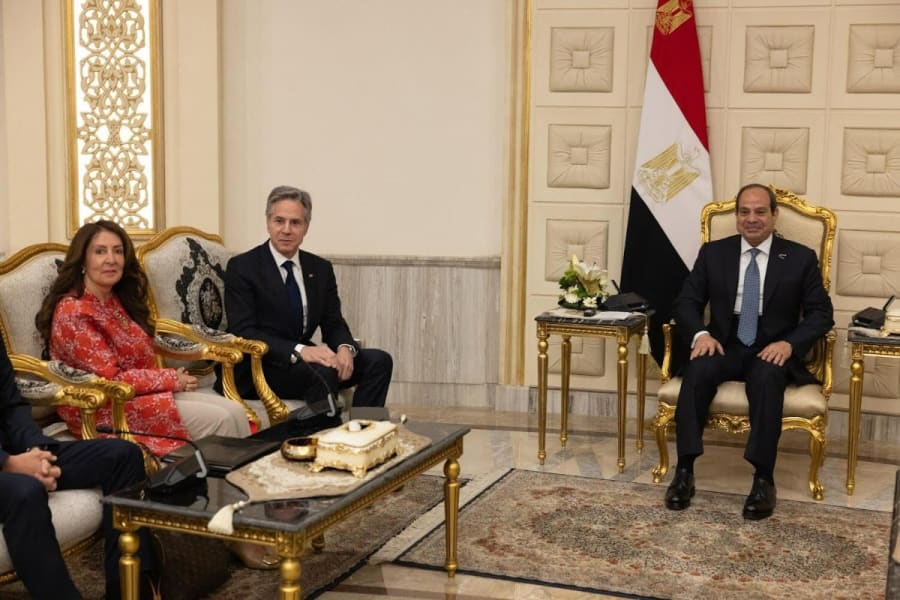Report claiming Egypt changed hostage deal terms raises questions about Israel's 'peace partner’
Inside source tells CNN: ‘We were all duped’

A report by CNN on Tuesday claimed that Egypt was responsible for the failure of the hostage negotiation deal at the beginning of the month which led to increased tensions between Israel and the United States.
According to the report, Egyptian intelligence, which served as a mediator, presented two different versions of the deal to Israel and leaders of the Hamas terrorist organization.
Three sources with intimate knowledge of the negotiations told CNN that a senior Egyptian intelligence official, Ahmed Abdel Khalek, was responsible for submitting a different version of the deal to Hamas. Abdel Khalek is the deputy to the chief of Egyptian intelligence, Abbas Kamel.
After Israel had agreed to a framework for a hostage deal, Abdel Khalek reportedly inserted terms more favorable to Hamas into the version he provided to Hamas leaders without the knowledge of Israel or the other mediators. Hamas negotiators later publicly claimed to have accepted the hostage deal, casting Israel in a bad light when it suddenly refused.
One of the sources told CNN that “all sides were under the assumption the Egyptian mediators provided the same document” to both Israel and Hamas.
Both the U.S. and Qatar have denied any knowledge of the altered framework.
One of the sources told CNN, “We were all duped.”
CNN also claimed to have seen the framework provided to Hamas, which included a permanent ceasefire and “sustainable calm” to be reached in the second or third stages of the deal.
Israel, however, has consistently stated it would not agree to a permanent ceasefire that would leave the Hamas regime ruling the Gaza Strip. Israel indicated that Hamas would not likely get a better offer. U.S. State Secretary Antony Blinken even called the framework “extraordinarily, extraordinarily generous on the part of Israel.”
With the hostage negotiations stalled, and subsequent developments causing additional friction between Israel and Egypt, relations between the two countries appear to have reached a significant low point.
Egypt has steadfastly opposed Israel's entry into the southern town of Rafah, citing concerns that Hamas operatives would infiltrate the Sinai, which could lead to cross-border attacks.
However, after Israeli military forces entered Rafah, seizing control of the border crossing, following rocket attacks on the Kerem Shalom border crossing, the IDF discovered at least 50 tunnels from Rafah crossing into Egypt. The tunnels were apparently used for smuggling weapons, supplies, and possibly people.
Analysts assert that the extensive size and number of the tunnels make it virtually impossible for Egypt to be unaware of their existence.
Shortly after Israel gained control of the crossing, Egypt halted all humanitarian deliveries into Gaza and then announced that it would join South Africa’s “genocide” lawsuit against Israel.
Israel has continued operations in Rafah, and with the U.S. reportedly satisfied with Israeli preparations, including the evacuation of almost one million civilians in Gaza, an expanded Rafah operation could begin within the next few days.

The All Israel News Staff is a team of journalists in Israel.
You might also like to read this:














